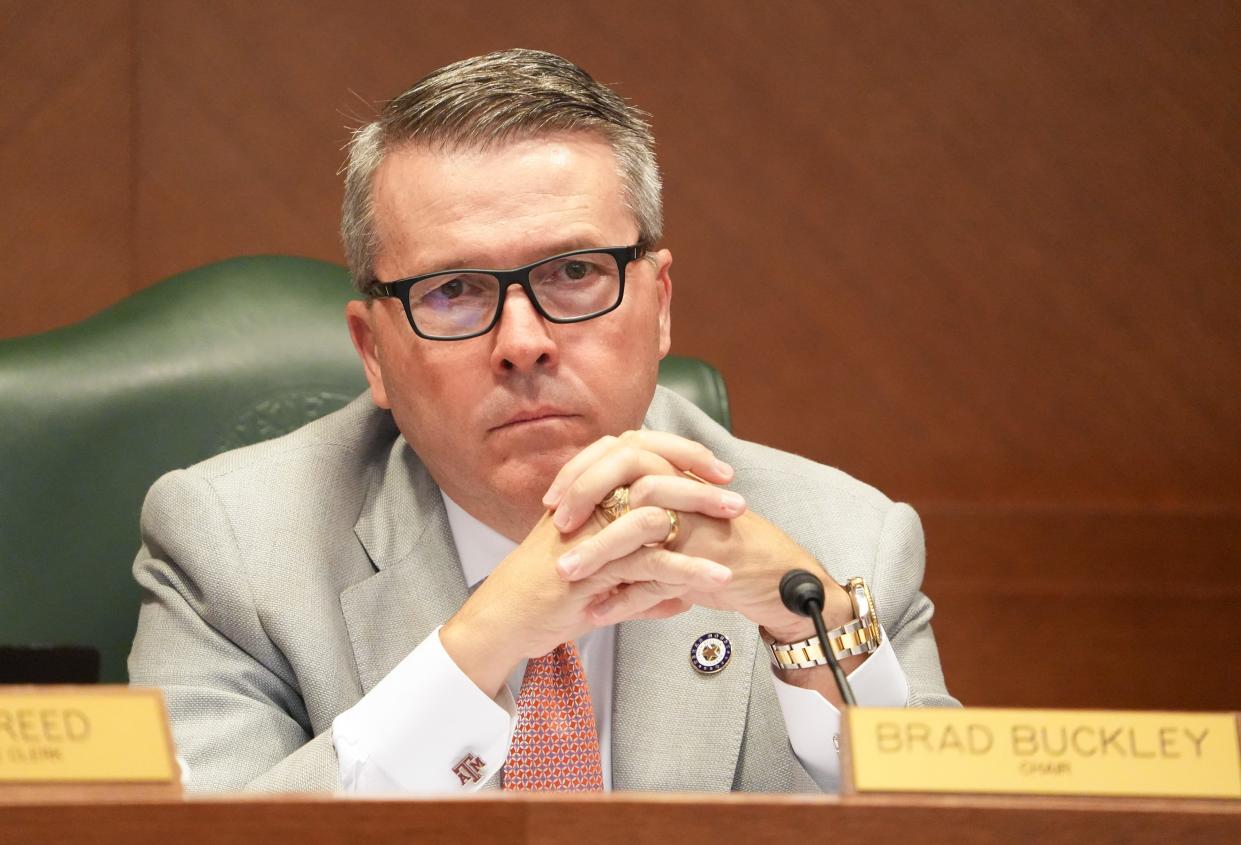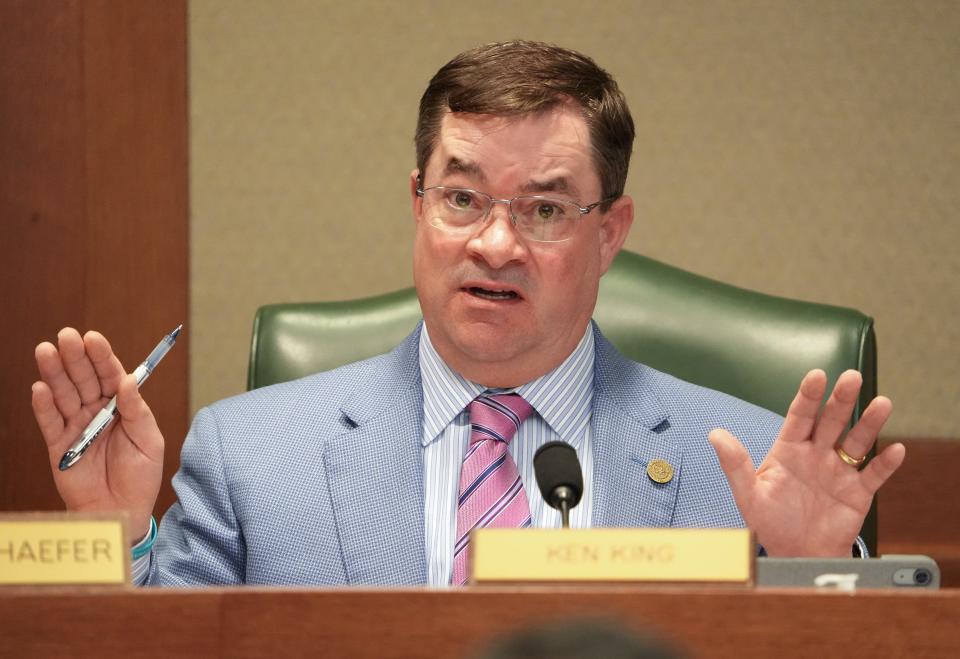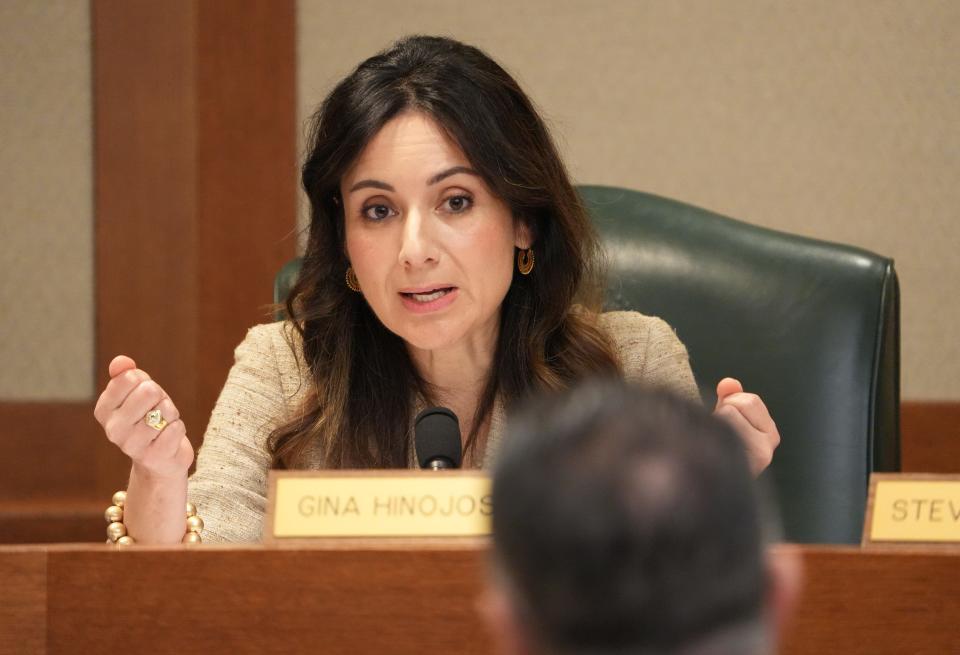Abbott threatens special sessions if lawmakers don't pass 'meaningful' school choice bill

- Oops!Something went wrong.Please try again later.
With the legislative clock ticking down, Gov. Greg Abbott said Sunday that he would veto the Texas House's latest slimmed-down version of a Senate school voucher bill and threatened to call lawmakers back for a special session to hammer out a proposal that would provide "meaningful school choice."
"Texas parents and their children deserve the time and effort it will take to pass critical school choice legislation this session," Abbott said in a tweet Sunday, just a day before the House Public Education Committee was set to take up Senate Bill 8.
The bill, authored by Sen. Brandon Creighton, R-Conroe, proposed creating education savings accounts and making state funding available to parents for their children's private education. Since the bill moved from the Senate to the House, the number of children eligible for the program has dwindled from most of the 5.5 million Texas students to 800,000.
School choice has become a linchpin this legislative session for Abbott, who has toured numerous private schools across the state to tout the issue.
Though the House Public Education Committee would first need to advance any school choice proposal to the full chamber for a vote, House members have signaled their displeasure about such legislation. The House also approved its version of the state budget with a prohibition on using public funds for private education.

The original version of SB 8 would have made most students eligible to participate in an education savings account program and proposed making $8,000 available annually to parents of children who left public schools to help them pay for their student's private tuition or other costs such as textbooks and tutoring. When the bill reached the House, it was pared down to offer the program only to students with disabilities and those who receive free or reduced-price lunches, or about 4 million total.
In the House committee's latest version of the bill, released over the weekend, only students with disabilities, those attending a failing campus or children with siblings in the program would be eligible.
"It also provides less funding for special education students than the original House version of the Senate bill and denies school choice to low-income families that may desperately need expanded education options for their children," Abbott said in his Sunday statement.
“Failure to expand the scope of school choice to something close to the Senate version or the original House version of the Senate bill will necessitate special sessions,” Abbott said. “Parents and their children deserve no less.”
As proposed in the House version, children in the program would have access annually to average per student spending in their zoned school district. The statewide average is $9,052. Students with disabilities would get an additional $1,500.

The bill would also significantly alter state testing and would replace the State of Texas Assessments of Academic Readiness for students in higher grades with the Texas Success Initiative Assessment, which is geared toward college readiness.
During the committee hearing meeting Monday, House Public Education Committee Chairman Brad Buckley, R-Killeen, said the bill was meant to give parents more schooling options.
“This is not a public schools vs other schools issues,” Buckley said. “I love and appreciate our public school system. This legislation isn't intended to be any accusation or attempt to take anything down.”
Some children need a setting that's different from a traditional classroom, but families can't always pay the steep prices that private schools charge, said Tracy Hansen, principal and founder of Oak Creek Academy in Killeen.
"If a family cannot afford a private education, is that really a choice?" Hansen asked.
Some lawmakers, however, insisted that an education savings account program would give parents a way out of a school system that needs more money.
“I’m trying to figure out why we would be creating lifeboats when we’re the one sinking the ship,” said Rep. James Talarico, D-Austin. “Can the Legislature be the arsonist and the firefighter?”
Lawmakers have said they want to create savings accounts to help economically disadvantaged students, but the best way to do that is by funding public schools, said Rep. Alma Allen, D-Houston.
“We need to think seriously about fixing all of the schools,” Allen said. “This is a sin what we are doing here today.”
To Emily Dominguez, a prekindergarten bilingual teacher in the Bastrop district, lawmakers passing savings accounts would signal a lack of support for public education.
"This is a message of, 'We don't care about you,' from our state," Dominguez said. "We are telling our future educators, if we have any, that, 'You are going to struggle as an educator.’ ”
School choice has been one of the most divisive issues this session. Abbott spent months before and during the session traveling around the state to advocate for the proposal, investing significant time and political capital on school choice.
The House has twice signaled warnings that a vote on education savings accounts could be fraught in that chamber. When House members in April approved the chamber's version of the budget with the school voucher ban, it passed 86-52.
On May 10, the House shot down Buckley’s attempt to call the committee to meet for a vote on SB 8 without posting rules — normally a routine approval — by a 76-65 vote.
Event committee members were split in their vote.
On Monday, the committee didn't vote on SB 8 but left it pending. It wasn't clear at the time when members would vote on the bill. Saturday is the last day a House committee could report a Senate bill with enough realistic time for a full vote of the House.
This article originally appeared on Austin American-Statesman: Texas Legislature: Abbott signals special sessions for school choice

